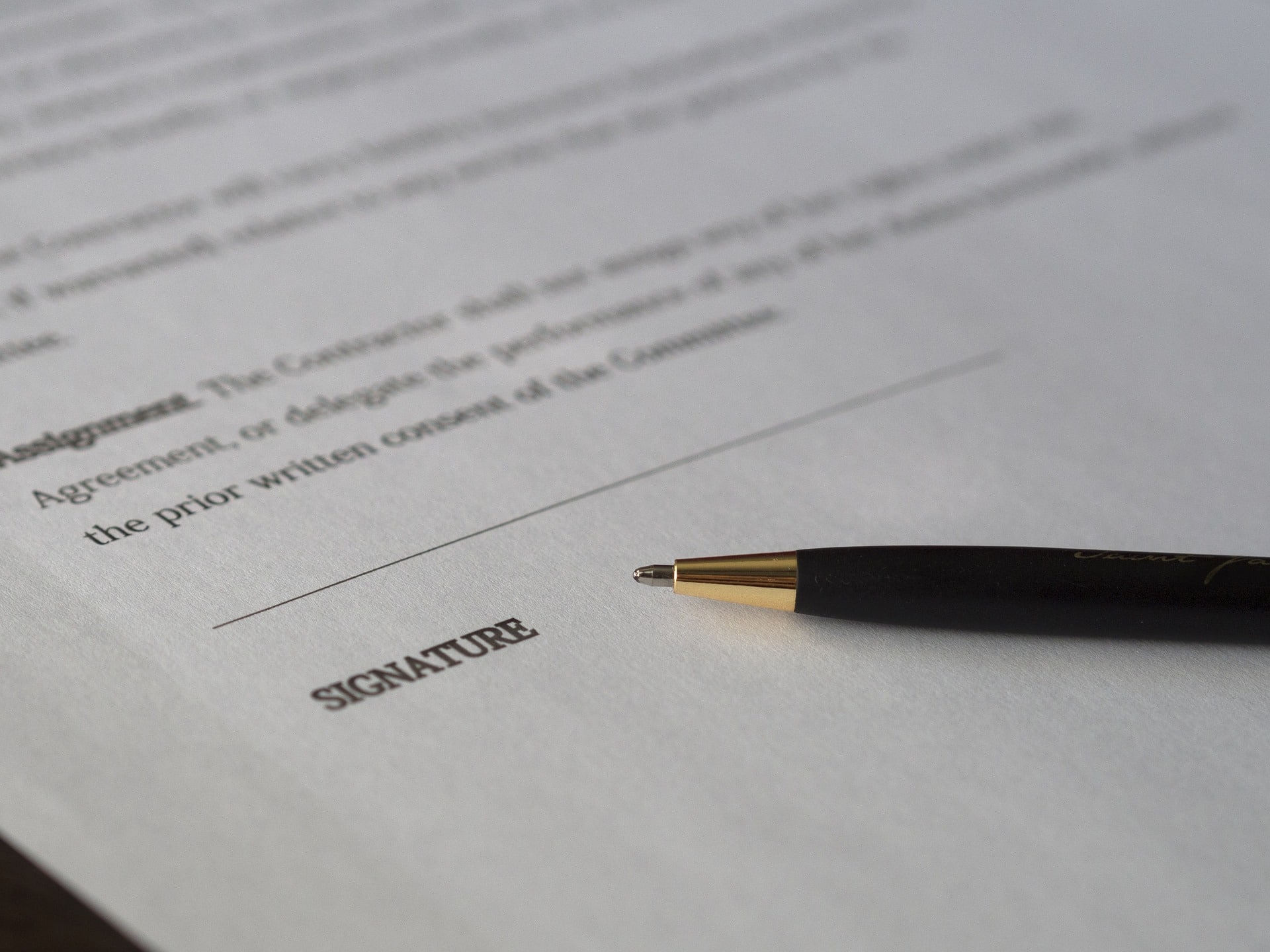
Table of Contents
When you file a bankruptcy, you have to go through a lot of paperwork. You’ll need to include complete documentation of all your income and assets. You’ll also need to include complete documentation of all your debts. That includes a complete list of all your creditors. The court uses that list to notify your creditors about your bankruptcy.
Of course, with so much paperwork, even the most careful bankruptcy filer may make an honest mistake and leave a creditor off the list. Creditors have important legal rights in your bankruptcy case, so what happens when you forget to include a creditor in your bankruptcy?
The Creditor Mailing List
Your “Creditor Mailing List,” also sometimes called a “mailing matrix,” must include all of your creditors and their contact information. That includes debts that won’t be handled through the bankruptcy process, such as student loan debts. The court uses that list to send your creditors a notice that you’re filing a bankruptcy. That’s important for creditors because they may want to be involved in the process.
Depending on the type of bankruptcy you file, your creditors may need to be involved in the reaffirmation of your debts, the payout of any liquidated assets, or the approval of a payment plan. In order to get their portion of the repayment, a creditor needs to file a “proof of claim.” If they don’t get notice, they have no way of filing a proof of claim and get shut out of your bankruptcy.

An expert tip from Erik
Not only is the creditor mailing list important to your creditors, but it’s also important to your case. When you file, you get the protection of the automatic stay. That means all collection efforts have to stop. Creditors can’t follow the automatic stay (and stop garnishing your wages, foreclosing on your home, or suing you for collection) if they don’t know you’ve filed. In addition, leaving a creditor off your list can affect the outcome of your bankruptcy.
Remember that you file bankruptcy forms under penalty of perjury — leaving information off the creditor mailing list intentionally is a crime. Of course, the court understands that accidents happen and mistakes made in good faith can be addressed in various ways. When you’ve accidentally left a creditor off your mailing list, the outcome depends on the type of bankruptcy you’ve filed.
How to Add a Creditor to Chapter 7 Bankruptcy
In a Chapter 7 bankruptcy, you surrender your non-exempt assets to the court. Those assets are sold and the proceeds are distributed to creditors. Most debtors have no non-exempt assets; this is called a “no asset” bankruptcy. If you do have some non-exempt assets that can be sold to pay creditors, it’s called an “asset” bankruptcy.
If you leave a creditor off your creditor mailing list for Chapter 7, the results depend on whether your bankruptcy is a no asset bankruptcy or an asset bankruptcy.
No Asset Bankruptcy
If you have no non-exempt assets, your unsecured creditors don’t get anything from the bankruptcy. Remember that unsecured debt is debt that is not linked to a particular piece of property; it includes medical debt, credit card debt, personal loans, and other types of debt. Unsecured creditors don’t have to file a proof of claim in a no asset bankruptcy because there’s nothing to claim.
If the creditor you’ve left off the list is unsecured, there is no real consequence to accidentally leaving that creditor off of your list. They get what they would have gotten anyway if you’d included them — nothing. The debt is discharged even though it wasn’t included and the creditor will no longer have a right to collect.
If you leave a secured creditor off your creditor mailing list, the consequences are more serious. You may still face collection after your bankruptcy discharge. Secured debts are linked to a specific piece of property and are not discharged in a bankruptcy, but they may be reaffirmed, surrendered, or reorganized. Your creditor has to be involved in that process. For example, you might reaffirm your car loan and keep making payments through and after your bankruptcy in order to keep your car. If you leave your auto lender or other secured creditor off the creditor mailing list, the debt will not be discharged and they will still have the right to collect from you after your bankruptcy. That may mean foreclosure or repossession of the security (the property linked to the debt).
Some debts are not dischargeable in bankruptcy, including child support, spousal support, recent taxes, and more. Those debts wouldn’t have been discharged anyway, so accidentally leaving them off of your bankruptcy filing won’t change anything. They will still be collectible after your bankruptcy.
The vast majority of Chapter 7 cases are no asset cases, meaning the consequences of accidentally failing to include a creditor are typically not severe.
Asset Bankruptcy
If you do have non-exempt assets, your unsecured creditors will receive payment in proportion to the amount you owe them. In order to get that payment, they must file a proof of claim. Creditors left off the mailing list won’t get notice of the bankruptcy and won’t be able to file a proof of claim, so they don’t get the opportunity to claim their piece of the repayment. Unsecured creditors left off of your bankruptcy filing have the right to collect from you after your bankruptcy discharge. However, they can only collect from your non-exempt assets. In other words, you still have the protection of the Chapter 7 bankruptcy exemptions.
Secured creditors left off an asset bankruptcy have the same rights as secured creditors left off a no asset bankruptcy — they can pursue collection after your discharge.
Failure to List a Creditor in Chapter 13 Bankruptcy
In a Chapter 13 bankruptcy, creditors are typically much more involved than in a Chapter 7. Your creditors will have the opportunity to review and object to your repayment plan. Once your plan is approved, your payments will be divided proportionally among your creditors.
If you leave a creditor off of your Chapter 13 bankruptcy, that debt won’t be included in the bankruptcy and it won’t be discharged at the end. That means the creditor can attempt to collect from you after your bankruptcy discharge.
What to Do After Forgetting a Creditor
Regardless of the type of bankruptcy you filed, the first thing you should do when you realize you’ve left out a creditor is inform your bankruptcy attorney. They can help you take the necessary steps to rectify the error. If you haven’t yet reached the end of your bankruptcy, you can simply file a form with the bankruptcy court to add the missing creditor.
If you’ve already reached discharge and receive a collection notice from a creditor that was left out of your bankruptcy, contact your bankruptcy attorney immediately. They can help you determine whether or not the creditor has the right to collect based on the type of bankruptcy you filed. If the creditor is unsecured and you filed a no asset Chapter 7 bankruptcy, they can help you officially inform the creditor that the debt has been discharged. Otherwise, they can help you determine if any other factors, such as the statute of limitations, affect your responsibility for the debt. Regardless of whether the case is open or closed, contact your attorney with this information as soon as you become aware of it.
It’s important to contact your attorney as soon as you remember a creditor was left out. Willfully leaving a creditor out of your filing is a form of perjury, which is a felony, and can leave you open to criminal charges and dismissal of your bankruptcy case.
Considering bankruptcy? Let us help
If you’re considering bankruptcy, contact our experienced local bankruptcy attorneys today for a free consultation and case evaluation.
We can help you decide if bankruptcy is the right choice for you. If it is, we can guide you through the process and help you avoid the pitfalls of managing your own case.
